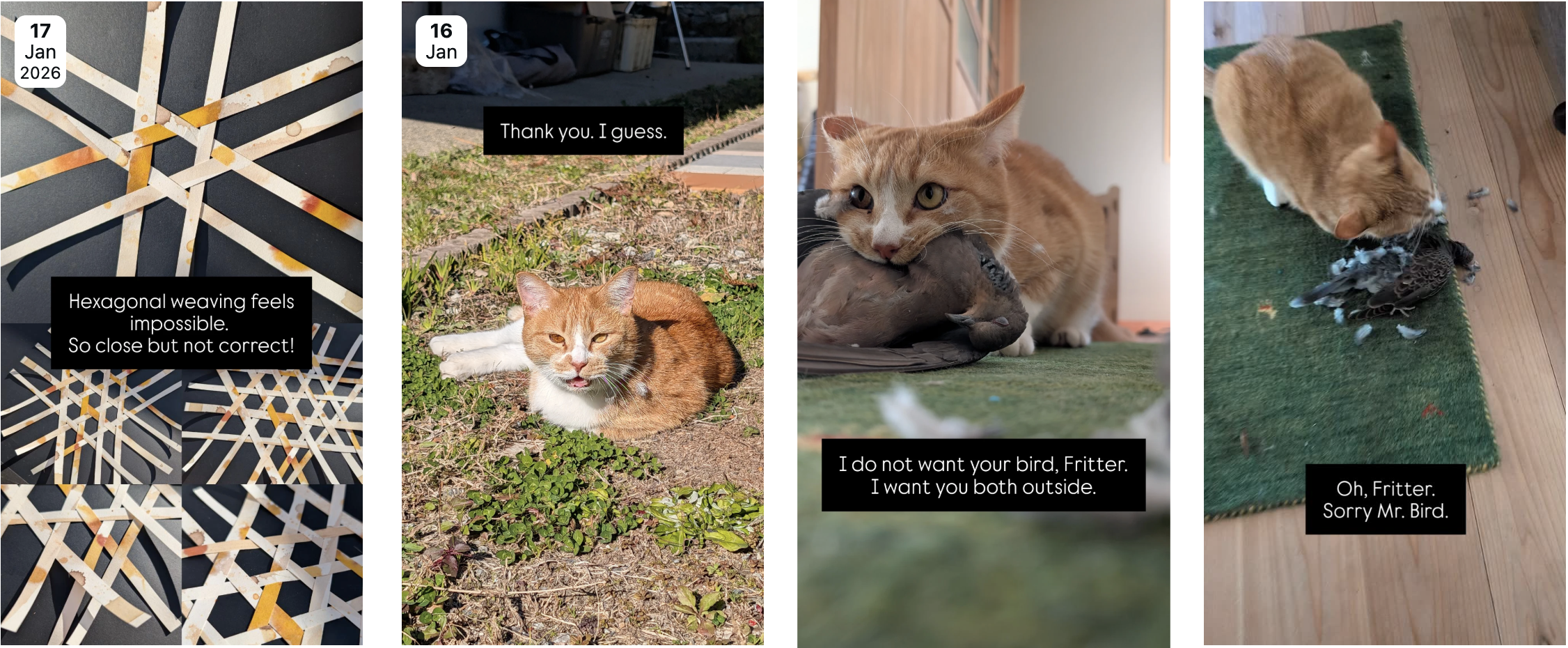I have to get this off my chest, and it’s a departure from my usual fare of cats, house building, and other projects. I won’t be offended if you don’t read or listen this one.
I have had enough of vague encouragement on social media. I beg you, if you are going to share, please let it be at least a little bit substantive.
We all know social media is a wasteland, a dopamine-spiking time sink that nobody really wants to participate in, except for the magical corners where we find our tribe. But to get to those corners, we must traverse the corridor of algorithmically selected suggestions. It’s a long scroll of influencers, real-life acquaintances and friends, wannabe influencers, and people who are trying hard to achieve their goal of fame or fortune (or both).
There is such a sense of desperation from people who post. You can smell the pressure to create fresh content, to post to an arbitrary schedule, to gain followers. You can taste the assumption that there is a magic formula that will make you viral. Either everyone is following the latest trend (right now on Instagram, it’s “use B-roll + text” and “trending audio”) or they are resharing their content from one platform to the other so you see it everywhere, or they have done to death in a myriad minor variations whatever clever skill got them noticed.
I have sometimes wanted to find fame, but I am awful at it. I don’t like the constant performative aspect of it. As much as I am a performer at heart, being a personality on social media requires someone with a different brain than mine. Someone who is consistently interested, socially aware, and not mercurial.
But this isn’t about my own failures, it’s about yours. LOL. Well, maybe not yours, but someone else’s.
What’s really bugging me right now is being told what to do, but not why I should do it. I see a lot of posts that feature a pretty background and some text commanding me to do some kind of self-care. Usually these commands are not even good advice or actionable suggestions, but trite things like “Breathe” or “You go!” or random advice without context like “Eat breakfast” or “Make a playlist that inspires you.” These tips are disconnected and they don’t feel real.
Fuck that. Seriously. If you want inspire someone, TELL YOUR STORY and then let them react to it. They might dismiss it, roll their eyes, file it away for later, or immediately see a connection to their own story.
I am certain these vague encouragements come from a real place.. Did the writer find herself in a situation where breathing was more than involuntary? Was the guy in the photo crabby in the morning before he discovered that eating breakfast helped his mood? I want to know the personal stories behind these one-line directives.
Are these well-designed, but vague posts meant to be a form of coaching or mentoring?
Perhaps they are. There’s a bit of overlap. Good mentors insert themselves only lightly into their mentee’s experience. Tossing in an aphorism or two in order to leave a memorable imprint on a session. But good mentoring is lots of listening and asking questions or brainstorming. Being a supportive sounding board more than a know-it-all sempai. Mentoring is a bespoke process.
So it’s hard to do traditional mentoring on social media, since the audience is largely unknown. Even when you personally know your followers or you assume that your followers have read your book or whatever larger scale content you create, the algorithms share your posts with strangers far and wide. Each post hang in space without anything supporting it.
Which is why context and substance in every post is important.

I am about to tell you what to do – but with context and substance backing me up! Here are five actionable points for you to try for your next posts.
- Tell your story, not the tl/dr summary. “Don’t pick up after your kids” means little without hearing why or how you got to that conclusion.
- Share the substantive stuff; drop the reminders. Teach me a cool move from your workout but don’t remind me to go to the gym.
- Tell me what the photo is. Why did you stop to take it? Why is it important enough to share? What’s your personal observation?
- Stop following trends & templates. Do your own thing; show your own work. It’s hard! So much simpler to use a Canva template or “grab a trending audio and put it on top of a 5 second clip of your pet” but honestly…boring
- Find your vulnerability – it’s just outside your comfort zone – and know the line of oversharing. Some things can be left unsaid. Social media is performance art and there is artistic license even when you are telling your real stories.
If this feels too much, maybe review posts from the accounts you enjoy the most. What about their work clicks for you? Good photography? Pithy captions? Smart stories? Whatever it is, try to do that. Copy someone until it’s real for you.
It will bring you toward better connection with your audience. Better connection with me. As if that’s important…I’m done ranting now. Thanks for reading.






